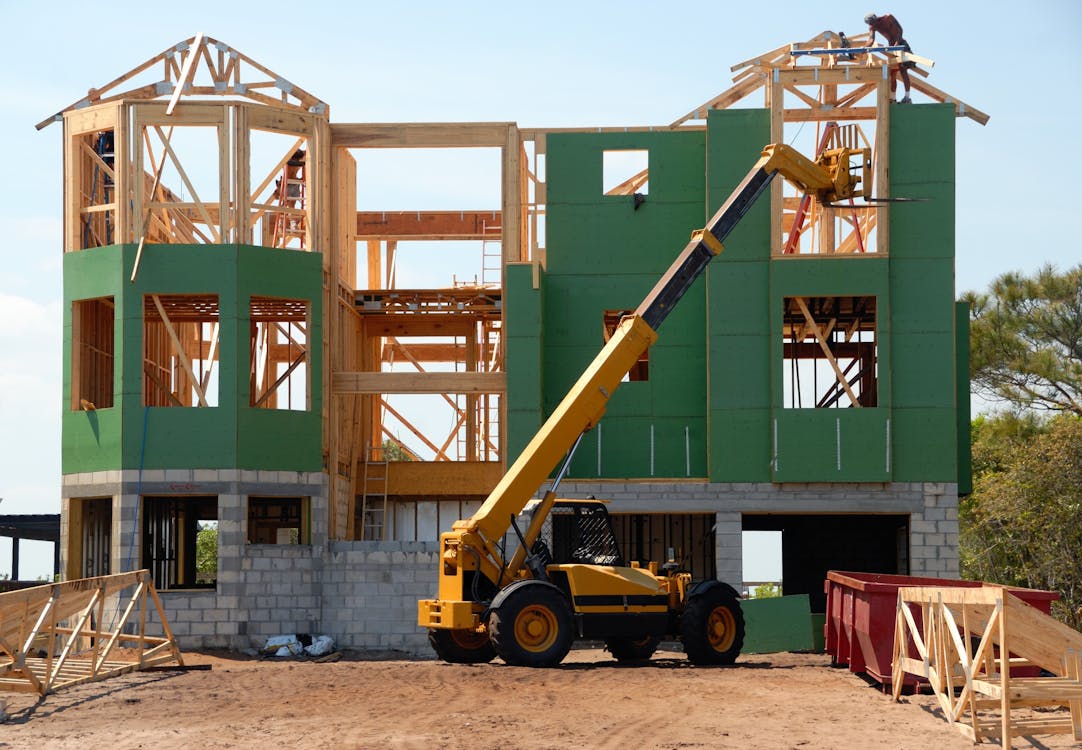Building a new home or commercial property is an exciting venture, but it comes with unique financial challenges. Unlike traditional mortgages, new construction loans are tailored to meet the specific needs of financing a construction project. Here’s a detailed guide on how to navigate these loans and fund your next building project effectively.
What Are New Construction Loans?

New construction loans are short-term financing options designed to cover the costs of building a property from the ground up. Unlike traditional home loans, which finance the purchase of an existing home, construction loans fund the various stages of a construction project.
Types of New Construction Loans
- Construction-to-Permanent Loans:These loans transition into a permanent mortgage once construction is complete, saving you from applying for separate loans.
- Stand-Alone Construction Loans:These require you to refinance or take out a separate mortgage after construction.
- Owner-Builder Construction Loans:These are for those who intend to act as their own contractor and have the expertise to manage the project.
How Do New Construction Loans Work?

Unlike standard loans, construction loans are disbursed in stages, known as “draws,” as the project progresses. Here’s how the process works:
- Pre-Approval and Loan Application:This step involves assessing your financial health and the feasibility of the construction project.
- Construction Timeline and Budget:You’ll need to present detailed plans, including costs, contractor details, and timelines.
- Disbursement of Funds:The lender releases funds in increments based on the completion of milestones.
- Loan Repayment:During construction, you’ll typically make interest-only payments on the amount disbursed. Full repayment terms begin once the project is complete.
Qualifying for a New Construction Loan

Lenders view construction loans as riskier than traditional mortgages, so the qualification process is more stringent. Here are the key requirements:
1. Strong Credit Score
A good credit score, typically 680 or higher, is essential to demonstrate your reliability as a borrower.
2. Significant Down Payment
Most construction loans require a down payment of 20%–30% due to the higher risk involved.
3. Stable Income and Debt-to-Income Ratio
Lenders want to see steady income and a manageable debt-to-income ratio (typically below 45%).
4. Detailed Construction Plans
You’ll need to provide comprehensive construction plans, including a budget, timeline, and builder or contractor credentials.
Benefits of New Construction Loans
1. Customization
These loans allow you to build a property tailored to your needs, whether it’s a dream home or a business facility.
2. Flexible Disbursements
The incremental disbursement process ensures funds are used specifically for construction milestones.
3. Interest-Only Payments During Construction
Paying only the interest during the construction phase can ease financial pressure until the project is complete.
Challenges of New Construction Loans
While these loans offer numerous advantages, they also come with some challenges:
- Higher Interest Rates:Construction loans often have higher interest rates than traditional mortgages due to the increased risk.
- Strict Requirements:Lenders demand detailed plans and qualifications, making the process more complex.
- Potential Delays:Weather, supply chain issues, or contractor delays can impact timelines and budgets.
Steps to Apply for a New Construction Loan
Step 1: Prepare Your Financials
Gather documentation such as tax returns, proof of income, and credit reports to present to lenders.
Step 2: Develop a Comprehensive Construction Plan
Work with your builder to create detailed blueprints, timelines, and cost estimates.
Step 3: Research Lenders
Not all lenders offer construction loans. Research those who specialize in these loans and compare their terms and interest rates.
Step 4: Submit Your Application
Complete the application process with all required documents, including your financial details and construction plans.
Step 5: Undergo the Approval Process
The lender will evaluate your application, inspect the construction site, and verify your builder’s credentials before approving the loan.
Tips for Managing Your Construction Loan
- Choose the Right Lender:Work with a lender experienced in construction loans to ensure smooth processing.
- Maintain a Contingency Fund:Set aside extra funds (typically 10%–20% of the total budget) for unexpected expenses.
- Stay Involved:Regularly monitor the construction progress to avoid delays or mismanagement.
- Communicate with Your Builder:Open communication ensures alignment on timelines and budgets.
Alternatives to New Construction Loans
If a construction loan doesn’t suit your needs, consider these alternatives:
- Home Equity Loans:If you own a property, you can use its equity to finance the new construction.
- Personal Loans:These can cover smaller construction projects but usually come with higher interest rates.
- Builder Financing:Some builders offer in-house financing options, simplifying the loan process.
- Traditional Mortgages with Renovation Add-Ons:These mortgages include funds for construction or significant renovations.
Common Mistakes to Avoid
- Underestimating Costs:Always account for potential overruns in your budget.
- Choosing the Wrong Builder:Ensure your builder has a solid reputation and experience in similar projects.
- Ignoring Loan Terms:Fully understand the loan terms, including interest rates and repayment schedules, before signing.
- Failing to Plan for Delays:Factor in potential delays when creating your timeline and budget.
Conclusion
Navigating new construction loans may seem daunting, but with proper planning and the right lender, they can be an excellent way to fund your building project. By understanding the loan process, meeting the qualification criteria, and managing your finances wisely, you’ll be well on your way to turning your construction dreams into reality. Take the time to research, plan, and consult with professionals to make informed decisions every step of the way.
Enjoy a Smooth Construction Process with Easily Approved Loans from Insula Capital Group
Simplify your next project with hard money construction loans, new home construction loans, and fix and flip financing from trusted private money lenders at Insula Capital Group. Whether you’re a real estate investor or a new builder, we offer fast, flexible solutions tailored to your needs. Explore your options today!




